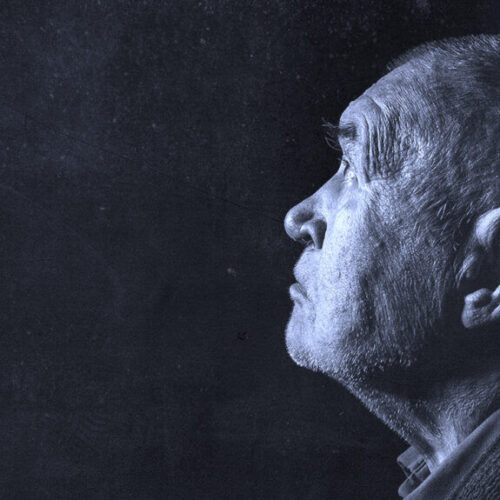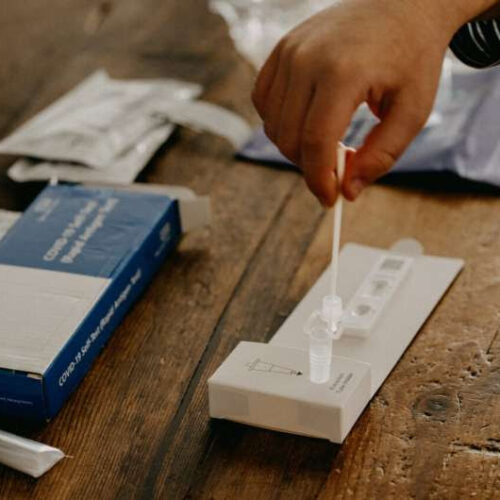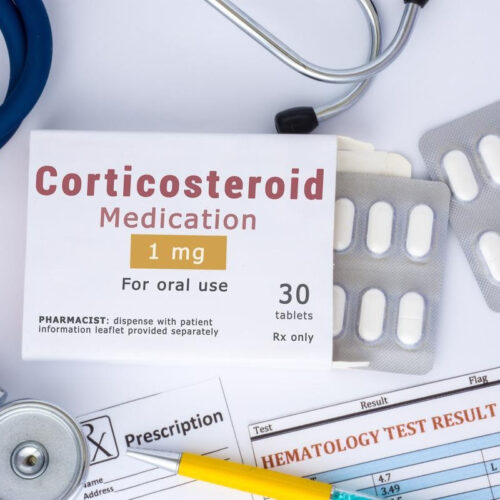Iron deficiency anemia is a condition in which the body does not have enough healthy red blood cells due to a shortage of iron. It is common among older adults, with possible causes including nutritional deficiencies, blood loss, taking certain medications, and poor absorption. The body uses iron in the production of red blood cells (RBCs), which...
Q and A: At-home tests for COVID-19
JANUARY 19, 2022 by Cynthia Weiss Credit: Unsplash/CC0 Public Domain DEAR MAYO CLINIC: With COVID-19 continuing to be a concern, should I stock up on at-home COVID-19 tests so I don’t have to wait in long lines to get tested elsewhere? What kind of tests are sold over the counter, and what should I know...
COVID-19 and Corticosteroids
By Akanksha Singh, BDS. Reviewed by Danielle Ellis, B.Sc. Corticosteroids have been advised as a drug to target the host immune response in patients affected with severe lung inflammation due to coronavirus disease 2019 (COVID-19). This treatment has been beneficial in reducing the mortality rate significantly. Corticosteroids have been in use for over 70 years and...
ADHD DRUG MAY PROTECT AGAINST ALZHEIMER’S NEURODEGENERATION
Boosting levels of the neurotransmitter norepinephrine with atomoxetine, a repurposed ADHD medication, may be able to stall neurodegeneration in people with early signs of Alzheimer’s disease, according to a new study. The results appear in the journal Brain. This is one of the first published clinical studies to show a significant effect on the protein tau,...
Earlier ovarian cancer detection with a pilot version of “itty bitty” device
Biomedical engineering professor and BIO5 Institute Director Jennifer Barton has spent nearly a decade developing a falloposcope for ovarian cancer detection in its early stages. Banner – University Medical Center surgeon Dr. John Heusinkveld has now used the device to capture images of study participants’ fallopian tubes for the first time. Due to a lack of effective...
Ketogenic diet likely to reduce brain damage after traumatic injury
A new international study led by Tel Aviv University (TAU) has determined that a ketogenic diet may reduce the effects of brain damage after traumatic injury. The study indicates that the diet improves spatial memory and visual memory, lowers brain inflammation indices, causes less neuronal death, and slows down the rate of cellular aging. The study was led by Professor...
CSHL and Veranome partner to accelerate brain mapping tech
Cold Spring Harbor Laboratory (CSHL) and Veranome Biosystems LLC, an Applied Materials company, are collaborating to bring engineering solutions from the semiconductor manufacturing industry to neuroscience. Veranome is licensing CSHL brain mapping and spatial transcriptomics (cell-characterization) technologies that are based on in situ sequencing methods. CSHL Professor Anthony Zador has developed mapping technologies that identify connections of individual brain...
Research team identifies new mechanism for protecting DNA
Discovery offers hope to better understand how diseases like cancer, premature aging can be prevented. Researchers from Case Western Reserve University have identified a new mechanism by which a protein known for repairing damaged DNA also protects the integrity of DNA by preserving its structural shape. The discovery, involving the protein 53BP1, offers insight into understanding how...
Ovarian cancer is not a silent killer
The myth that ovarian cancer is a “silent killer” is just that, a myth, says a UW Medicine expert on the subject. The more clinicians and primary-care providers recognize the early signs, instead of “blowing them off” as just gastrointestinal problems or nerves, the more lives will be saved, said Dr. Barbara Goff, professor and chair of obstetrics and...
Promising novel treatment for Dry Eye Disease revealed by new research
The University of Manchester, Seoul National University College of Medicine and Link Biologics Limited this week announced that promising preclinical data on the treatment of Dry Eye Disease using a novel protein biological drug, Link_TSG6, have been published in the peer-reviewed journal, Ocular Surface. Dry Eye Disease (DED) is the most common ocular surface disorder,...



